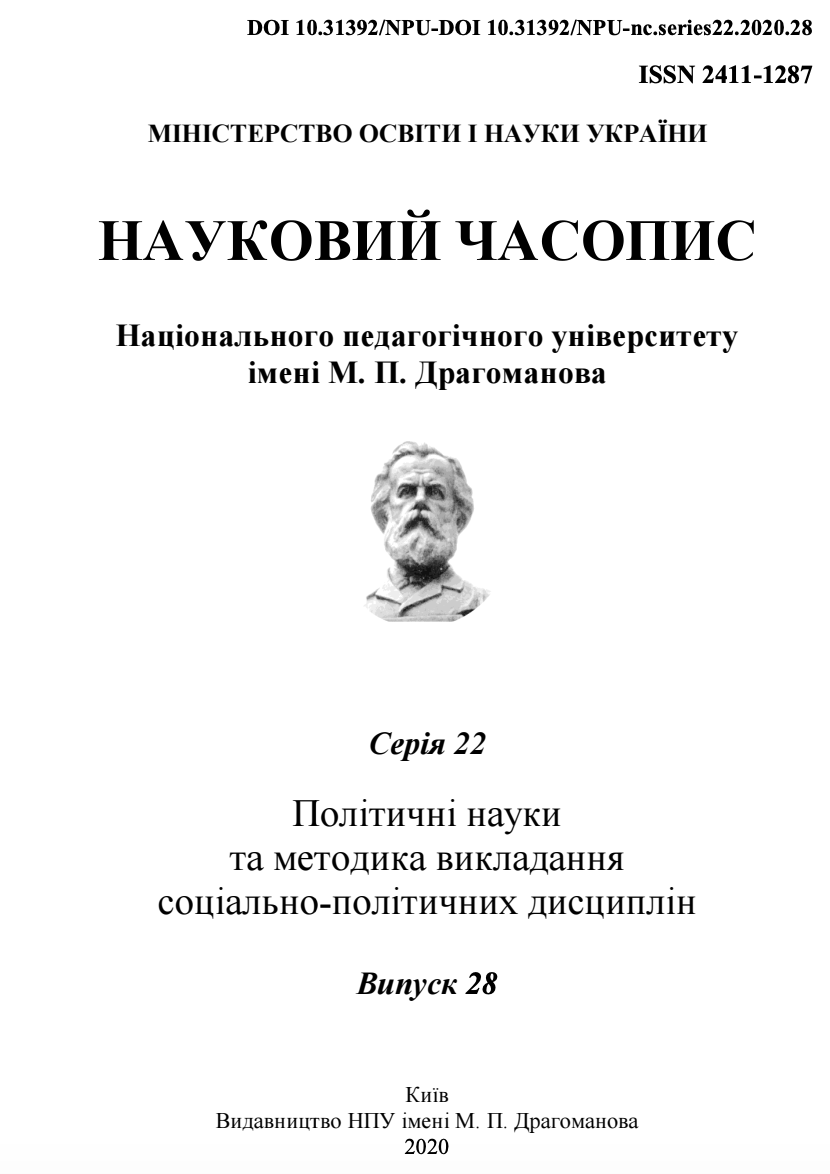КОНЦЕПТ ЄВРОСКЕПТИЦИЗМУ В ТЕОРІЇ МІЖНАРОДНИХ ВІДНОСИН
Ключові слова:
Євроскептицизм, євроскептики, ЄС, Велика Британія, класифікаціяАнотація
У статті досліджено євроспектицизм як критичне, скептичне ставлення до Євросоюзу, процесів політичної та економічної інтеграції країн Європи та загальноєвропейської політики. Зазначено, що виникнення євроскептицизму є логічним явищем у демократичних суспільствах, адже воно демонструє наскільки та чи інша нація готова приймати чи протистояти різним глобальним катаклізмам, утворенням і викликам. Перед європейськими державами на початку 1950–х рр. постав виклик створення нового типу міжнародної організації, яка передбачала вельми тісні стосунки між її членами.
Проаналізовано, що євроскептицизм як ідеологічна течія розвинена в багатьох європейських країнах, більшість науковців зараховують походження терміну саме Великобританії, оскільки тут склалися особливі умови для його виникнення та розвитку в через особливе становище країни в Європі та скептичне ставлення до процесу інтеграції. У перших дослідженнях євроскептицизм визначався лише як недостатня підтримка подальшого процесу європейської інтеграції. Надалі це явище стали описувати як повну або часткову опозицію процесу інтеграції. Сьогодні ж євроскептицизм охоплює всі політичні сили, які не підтримують європейську ідею або її інституційне втілення.
Доведено, що через відсутності єдиного погляду на проблему й термінологію до сьогодні не вдалося виробити загальноприйняту теорію євроскептицизму. Найчастіше науковці дотримуються концепції британських політологів П. Таггарта, А. Щербяка, які ділять єврокритиків на помірних та радикальних. Перші виступають проти певних політичних заходів та інституційних аспектів інтеграції, водночас не сумніваються в ідеї єдиної Європи. Другі ж представляють принципову опозицію проекту європейської інтеграції та ратують за вихід своїх країн з ЄС.
У висновку зазначено, що євроскептицизм - вільна течія європейських держав або різновид європейського регіоналізму, прихильниками якого можуть бути представники найрізноманітніших політико-ідеологічних течій. Прихильники євроскептицизму побоюються втрати національного суверенітету їх держав, а тому виступають з позицій підтримки національних держав. Цілі у євроскептиків з різних країн теж значно різняться: одні домагаються виходу своїх держав з ЄС або єврозони, інші – реформування союзу, залишаючись його повноправним членом.

